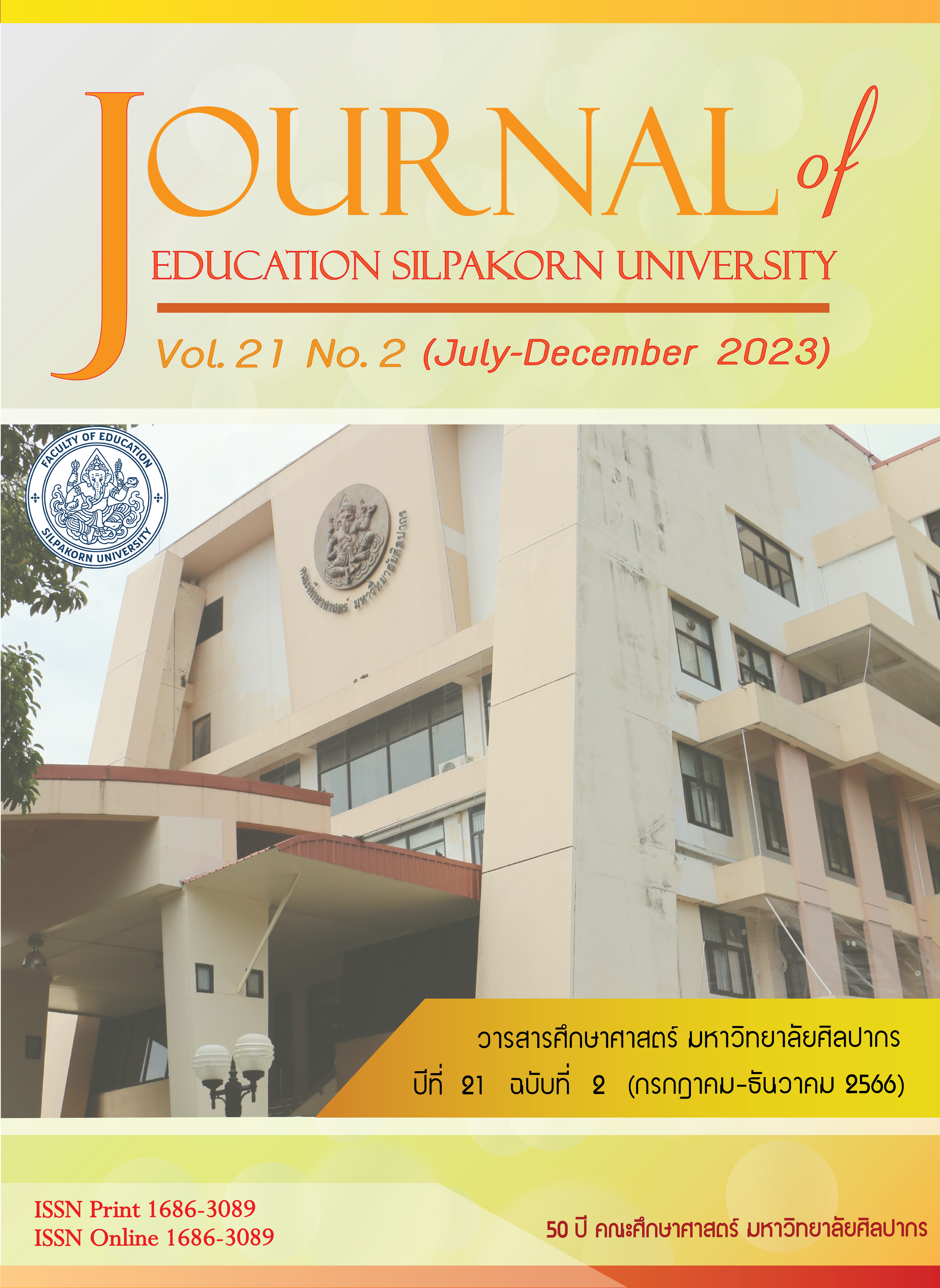Factors related to Self-directed Learning Behaviors of Students Department of Microbiology Faculty of Science Ubon Ratchathani Rajabhat University
Main Article Content
Abstract
The purposes of this research were to 1) study self-directed learning behaviors of students in faculty of science, ubon ratchathani rajabhat university 2) study factors related to the self-directed learning behaviors of students in faculty of science, ubon ratchathani rajabhat university. The samples consisted of 66 students in department of microbiology faculty of science. A questionnaire was used for collecting data with the reliability of 0.825. The statistics in this study consists of mean, standard deviation, Pearson correlation and multiple regression analysis.
The results were that: 1) the level of self-directed learning behaviors of students in faculty of science, ubon ratchathani rajabhat university overall and each side are at high level, self-reliant to efficient learner at the top one, followed by opening to chance for learning, and the last one is initiative and self-sufficient for learning respectively; 2) factors related to the self-directed learning behaviors of students are self-efficacy, locus of control and responsibility role models; which can forecast self-directed learning behaviors of students at 66.2 percent and the multiple correlation coefficient value is .813.
Article Details

This work is licensed under a Creative Commons Attribution-NonCommercial-NoDerivatives 4.0 International License.
References
Bandura, A. (1986). Social foundations of thought and action: A social cognitive
theory. New Jersey: Prentice-Hall.
Bhanthumanvin, D., and Prachonpachanuk, P. (1977). Morality of Thai Youth.
nd ed. Bangkok: Behavioral Science Research Institute Srinakharinwirot
University. (in Thai)
Brockett, R.G., and Hiemstra, R. (1991). Self-direction in adult learning:
perspectives on theory, and practice. London: Routledge.
Brookfield, S.D. (1984). Self-Directed Adult Learning: A Critical Paradigm.
Adult Education Quarterly. 35, 59-71.
Chomeya, R. (2018). Student’s Self-directed Learning Behavior in Mahasarakham University. Journal of Education Mahasarakham University. 12(3), 309-317. (in Thai)
Issarawat, S. (1995). Self-learning of Thai people. Nakhon Pathom: department of
education Mahidol University. (in Thai)
Knowles, M.S. (1975). Self-directed learning. New York: Association Press.
Maslow, A.H. (1970). Motivation and Personality. New York: Harpers and
Row.
McClusky, W.F. (1986). The self-directed and attitude toward mathematics of
younger and older undergraduate mathematics students. Dissertation Abstracts International, 46, 3279.
Merrian, S.B., and Caffarella, R.S. (1991). Learning in adulthood. San Francisco:
Jossey-Bass Publishers.
Piatong, A., Chotvichai, Y., and Prasertnu, S. (2015). Actors affecting self-directed learning of undergraduate students faculty of education chandrakasem Rajabhat university. Journal of Chandrakasem Sarn. 21(40), 137-145.
(in Thai)
Pitaksapaisal, N. (2008). Relationship between learning behaviors and electronic
media utilization of undergraduate students at King Mongkut’s University of Technology Thonburi. Master of Science in Industrial Education
King Mongkut’s University of Technology Thonburi. (in Thai)
Srisa-ard, B. (2010). Basic Research. Bangkok: Suweeriyasan. (in Thai)
Taweesin, S. (2002). Educational Psychology. Bangkok: Thai Seng Press. (in Thai)
Tough, A. (1979). The Adult’s Learning Projects. Ontario: The Ontario
Institute for Studies in Education.
Yuwamornpitak, C. (2001). Self-guided learning characteristics of Ramkhamhaeng
University undergraduate students Chalermprakiet Academic Resources. Master of education thesis Ramkhamhaeng University. (in Thai)


